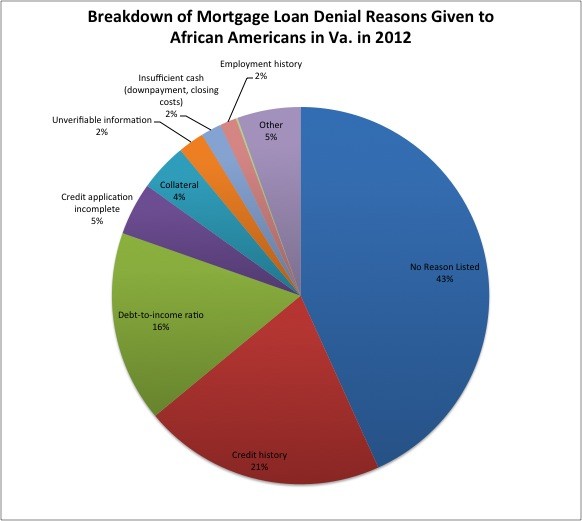5 Reasons Why FHA Loan Applications Get Rejected
Post on: 16 Март, 2015 No Comment

Find out how much you can afford to borrow:
The Federal Housing Administrations loan program is incredibly popular among home buyers these days. In many ways, FHA loans are a last resort for borrowers who get turned down for conventional or regular mortgages.
But the FHA program is going through many changes lately. Standards are getting higher, and so are the costs associated with these loans. As a result, there is no guarantee you can get approved for an FHA loan. Just ask the thousands of people who get turned down for the program every year.
Why FHA Borrowers Get Turned Down
There are more than a dozen reasons you could be denied an FHA loan. But some factors are more common than others. Here are the five most common reasons why FHA applications get rejected.
1. You lack the funds for a down payment.
Current guidelines issued by the Department of Housing and Urban Development (HUD) require all FHA borrowers to put down at least 3.5% of the loan amount. This requirement immediately rules out borrowers who simply lack the cash reserves for a down payment.
VA and USDA loans are the only options for 100% mortgage financing these days. Conventional loans require a minimum of 5% down, and sometimes as much as 20%. The Federal Housing Administration requires at least 3.5%. So if you cant come up with at least 3.5% of the loan amount, youll likely be turned down for an FHA loan.
2. You dont have enough money to cover your closing costs.
The down payment is only one of the upfront expenses youll encounter. Youll also have to pay closing costs on the loan, and these can add up to thousands of dollars. Granted, the FHA allows sellers to contribute a certain percentage of the purchase price toward the buyers closing costs.
But these so-called sellers concessions are becoming more and more rare in todays real estate market. Many cities cross the country are transitioning from a buyers market to a sellers market. And in a sellers market, homeowners are unlikely to make such concessions. After all, they have all the leverage.
When you apply for an FHA loan, the lender will check to see how much money you have in the bank. If you dont have enough to cover your down payment and your closing costs, you could be denied the FHA loan.
3. You have too much debt.
The debt-to-income ratio, or DTI, has become one of the most important mortgage qualifications in 2013. This is when lenders compare your gross monthly income to your monthly expenses (recurring debts such as credit card bills, car payments, and the like). The DTI limits vary from one lender to another, and also depending on the type of loan you use.
When it comes to FHA loans, the 43% rule has emerged as the new gold standard. If your total debt-to-income ratio exceeds 43%, you could have trouble getting an FHA loan. You might not be turned down entirely. But youll face a more rigorous underwriting process.
4. Your credit score is too low.
There are three official credit-score limits within the FHA loan program:
- HUD requires borrowers to have a credit score of at least 500 to be eligible for the program.
- To take advantage of the 3.5% down-payment option, youll need a score of 580 or higher .
- A new rule for 2013 has set an additional bar at 620. In short, borrowers with credit scores below 620 and debt ratios above 43% must undergo a manual (i.e. more intensive) underwriting process.
Additionally, the mortgage lender may impose its own credit score guidelines on top of those issued by HUD. This scenario is so common theres a name for it – lender overlays. The lender can reject your FHA application even if your credit score falls within HUDs guidelines.
5. Youve been foreclosed on recently.
HUD has specific guidelines regarding previous foreclosures. If youve been through foreclosure within the last three years, you will probably be turned down for an FHA loan. The official guidelines state that borrowers may be eligible for the program if three years have passed since they were foreclosed upon, and only if the borrower has reestablished good credit in that time.
According to a recent HUD press release:
Borrowers are currently able to access FHA-insured financing no sooner than three years after they have experienced a foreclosure, but only if they have re-established good credit and qualify for an FHA loan in accordance with FHA’s fully documented underwriting requirements.
These are not the only reasons why FHA loans get rejected. But they are some of the most common scenarios. Sometimes its a single factor that leads to rejection. For instance, a borrower with too much debt can be turned down for a mortgage, even if he or she meets all other program requirements. In other cases, its a combination of factors that leads to rejection.
Heres what you should take away from all of this. The FHA loan program has long been seen as the last refuge for poorly qualified borrowers. But times have changed. The Federal Housing Administration has suffered massive financial losses, resulting from the housing crisis. As a result, they have tightened their standards across all aspects of the program.
FHA mortgage rejections are much more common today than they were in the past. In order to qualify for the program, you must be able to demonstrate your financial responsibility, and you must have a certain amount of money in the bank. There is no way around this. Welcome to the new economy.














